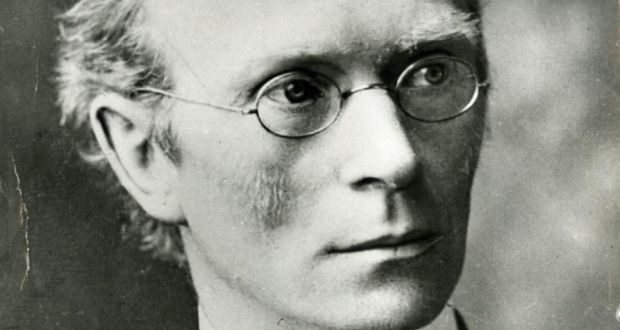Last January, the Minister for Education, Joe McHugh, invited views from the public on the current system of granting exemptions to pupils from the compulsory study of Irish, following debate around the current regime.
The Irish language organisations want exemptions to be kept to a minimum; they have long complained that these are granted too easily[i], and seem to fear that the public consultation process may lead to a further loosening in the system, rather than the tightening in the grounds they wish to see.
These Irish-language advocacy organisations, Conradh na Gaeilge and COGG (representing the Gaelscoil movement) perceive an even greater threat to the position of Irish in the schools in certain other refors under consideration by the Department of Education and the NCCA, namely, the possibility of students being able to choose just five subjects (as opposed to the current minimum of six – and with most schools offering eight subjects) from a wider range of Leaving Certificate subjects than are currently on offer.[ii]
The organisations fear that increased freedom of choice for students, combined with an expanded range of practical or vocational subjects, would lead, inexorably, to Irish becoming a subject of choice in the final school examination.
The Irish language organisations are therefore pledged to resist the changes now being mooted, knowing that the place of Irish in the education system has to be maintained by compulsion, and that its loss would both reduce the numbers of pupils studying Irish, and diminish the number of teachers of Irish required in the educational system as a whole.
Yet, already there is an acute shortage of teachers of Irish,[iii] even in its current dumbed-down form. The shortage is even more acute in teachers who can teach other subjects through Irish, and some all-Irish schools are now having to teach subjects such as Science, including Physics, through English.
The contest between Irish and other subjects in the school curriculum is an ancient one. In 1934, when the government was harnessing the primary schools to the task of reviving Irish, the resulting stresses on teachers led to intense negotiations between the Irish National Teachers Organisation (INTO) and the state. These resulted in teachers agreeing to place greater emphasis on Irish in return for the government accepting lower standards in the other subjects.[iv]
English was then reduced to the old ‘lower course’ in all schools; Mathematics shrank, with Algebra and Geometry becoming optional subjects in one teacher schools, as well as in three-teacher coeducational schools, and in all classes taught by women. ‘Farm Economics & Rural Science’ was abolished altogether, leaving its flasks, pipettes, rubber tubing and Bunsen burners in many a national school cófra to gather dust for ever after.
There followed the long decades of the Revival when 25% more class time was given to Irish than Arithmetic, twice as much time as to English and five times as much time as to either History or Geography.[v]
By the 1960’s, 40% of the entire budget for primary and secondary education went on languages, and, of that, 45% went went to Irish, while less than 1% was devoted to German.[vi] The vast expenditure was all, however, to no avail, proving Eoin MacNeill, the first Minister for Education, to be correct in his surmise that ‘You might as well be putting wooden legs on hens as trying to restore Irish through the school system.’[vii]
But the underlying ideology persists, and still today Conradh na Gaeilge and COGG persist in their determination to resist any weakening of the system of compulsion. It is essential to their mission and, make no mistake, these are doughty fighters who expect to be successful in their campaign.
Shaping the political narrative is a crucial factor, and these are past masters at harnessing allies to their cause. Irish politicians remain sensitive to any accusation of treachery to the national language. Furthermore, with Irish-language-enthusiast Joe McHugh at the helm, the organisations already have an ally occupying a crucial position in the forthcoming battle over the curriculum.
They were not to be disappointed. Within days the Minister for Education and Skills publicly asserted that Irish would always remain a compulsory school subject[viii] and Deputy Seán Kyne, Minister for the Gaeltacht went so far as to declare that students who were given exemptions from learning Irish should be blocked from learning other languages.[ix]
How will it all turn out? As if we didn’t know already; the Irish people will keep speaking English and their English-speaking officials will keep telling them to speak Irish – plus ca change – mar a déarfá.
Note: Donal Flynn is the author of a paper ‘The Revival of Irish – Failed Project of a Political Elite’ which can be found on www.sites/google.com/site/failedrevival
[i] Untitled, ‘É curtha i leith na Roinne Oideachais go bhfuil próiseas comhairliúcháin dhíolúine na Gaeilge ‘réamhshocraithe’’, December 18th, 2017, Tuairisc.ie, https://tuairisc.ie/e-curtha-i-leith-na-roinne-oideachais-go-bhfuil-proiseas-comhairliuchain-dhioluine-na-gaeilge-reamhshocraithe/, accessed 25/4/19.
[ii] Untitled, ‘Amhras mór caite ar stádas na Gaeilge mar ábhar éigeantach i dtuarascáil de chuid an NCCA’, December 17th, 2018, Tuairisc.ie, https://tuairisc.ie/amhras-mor-caite-ar-stadas-na-gaeilge-mar-abhar-eigeantach-i-dtuarascail-de-chuid-an-ncca/, accessed, 25/4/19.
[iii] Untitled, ‘‘Fáilte’ ag an Aire Oideachais roimh mholadh ar bith a leigheasfadh géarchéim na múinteoirí Gaeilge’, February 5th, 2018, Tuairisc.ie, https://tuairisc.ie/failte-ag-an-aire-oideachais-roimh-mholadh-ar-bith-a-leigheasfadh-gearcheim-na-muinteoiri-gaeilge/, accessed 25/4/19.
[iv] Adrian Kelly, Compulsory Irish: Language ad Education in Ireland 1870s to 1970s, ??? p.46
[v] John Kelly, ‘Education and the Irish State’, Unpublished paper delivered in Saint Patrick’s College Drumcondra, 1969.
[vi] Dr Edmund Walsh, ‘Education for Europe’, delivered to the Chambers of Commerce of Ireland on May 16th, 1987.
[vii] J. J. Lee, Ireland 1912-1985, Politics and Society, Cambridge, Cambridge University Press, 1989, p.133
[viii] Carl O’Brien, ‘Minister insists Irish will remain compulsory in school’, January 4th, 2019, Irish Times, https://www.irishtimes.com/news/education/minister-insists-irish-will-remain-compulsory-in-school-1.3747161, accessed 24/4/19.
[ix] Ian O’Doherty, ‘Gaeilgeoir brigades still turning people off learning Irish’, April 24th, 2019, Irish Independent, https://www.independent.ie/opinion/ian-odoherty-gaeilgeoir-brigades-still-turning-people-off-learning-irish-37723097.html, accessed 24/4/19.




